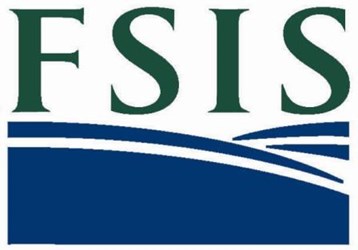FSIS Wants Proof Of Antibiotic-Resistant Salmonella Strains Being Exceptionally Dangerous
By Laurel Maloy, contributing writer, Food Online

More than three years after the Center for Science in the Public Interest’s petition requested adulterant status for antibiotic-resistant Salmonella, FSIS declines to act
The Center for Science in the Public Interest (CSPI) first filed a petition with the Food Safety and Inspection Service (FSIS) on May 25, 2011. The petition urged FSIS to declare antibiotic-resistant (ABR) strains of Salmonella an adulterant when found in raw ground meat and raw poultry. This declaration would require FSIS to test for these specific pathogens. If discovered, the agency would then be able to issue a formal recall, removing the adulterated products from the food supply.
Is your company prepared for a recall? Here are seven steps to help you prepare.
As of right now, the discovery of any strain of Salmonella is not cause for a recall. The fact is, Salmonella is legal, up to certain limits, the percentage determined for specific raw foods. It is considered common-place and expected, especially in poultry. This is why Foster Farms was not legally responsible for issuing a recall during the multi-state outbreak and also why the FDA was only able to issue a public health alert. Basically, the way the law is currently written, it is up to the public to know they must prepare their chicken properly
Ironically, Consumer Reports was busy testing chicken when the Foster Farms outbreak occurred. It tested more than 300 raw chicken breasts from various stores throughout the country. A whopping 97 percent of the breasts tested positive for some kind of bacteria that can sicken consumers. This, itself, was not that surprising, at least to the researchers. What Consumer Reports’ testers found troubling was that more than half of the samples contained fecal contaminants, the source of Salmonella. Furthermore, about half of those tested positive for at least one ABR bacterium resistant to three or more commonly prescribed antibiotics.
CSPI wants ABR strains of Salmonella Hadar, Salmonella Heidelberg, Salmonella Newport and Salmonella Typhimiurium singled out. CSPI bases its assertion upon the fact that the difference between ABR Salmonella and non-ABR strains is that the ABR Salmonella strains are the direct result of human intervention. This claim is not without merit. The Centers for Disease Control and Prevention (CDC) launched a program 10 years ago promoting appropriate antibiotic use in animal agriculture and veterinary medicine. In June of this year, the American Medical Association (AMA) said the presence of antibiotics in our food supply is creating a “dangerous public health crisis.” Physicians say the effectiveness of antibiotics is declining. Many patients are exhibiting sluggish or no response at all to commonly prescribed antibiotics. According to Keep Antibiotics Working, this antibiotic resistance is the direct result of decades of inappropriate use by the meat industry. This consumer advocacy group has more than 11 million members, and now can lean on the AMA’s most recent report for credence.
White Paper: Improving Quality Assurance In The Meat And Seafood Chain
The CSPI’s petition was put on the back burner by FSIS, until CSPI filed suit on May 25, 2014, requesting the court require FSIS to respond. On July 31, the response was a denial, “without prejudice.” FSIS explains its reasoning, citing a lack of data concerning a number of salmonella-related concerns. FSIS wants to know:
- If ABR Salmonella causes more severe illnesses (See what the AMA has to say and read about the FDA’s Commitment for its Antibiotic Resistance Strategy)
- If ABR Salmonella is more heat-resistant than non-ABR strains (if it can be cooked out; it is not then an adulterant?)
- What is the actual number of Salmonella bacterium, per serving, in different food products proven to be responsible for outbreaks? FSIS wants to know this so understanding of the actual effective dose of the different strains can be achieved
